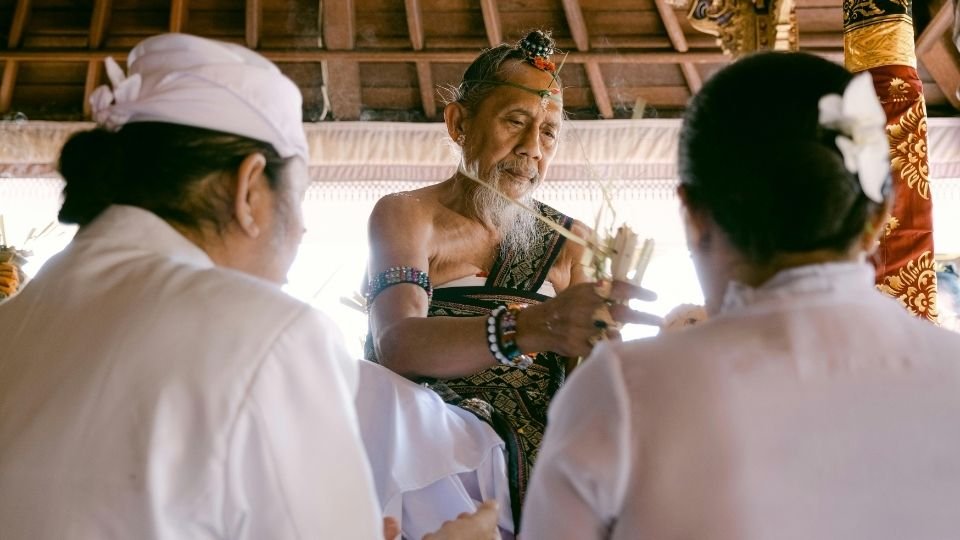
Why Bali is Not Muslim? Bali is one of the most iconic travel destinations in the world, known for its stunning beaches, rice terraces, and vibrant spirituality. But there’s one thing that often surprises visitors — Bali is not Muslim, unlike most of Indonesia. In fact, Bali is predominantly Hindu, making it a rare exception in a country where over 85% of the population identifies as Muslim.
So, why is Bali not Muslim? The answer lies in a fascinating blend of history, culture, religion, and geography. This article will walk you through the key reasons why Bali has remained a Hindu island in the middle of a Muslim-majority nation.
1. Hindu Influence Before Islam in Indonesia
Before Islam became the dominant religion in Indonesia, much of the region was influenced by Hinduism and Buddhism. These belief systems arrived from India through trade and cultural exchanges as early as the 1st century CE. Over time, Hindu kingdoms flourished, especially in Java and Bali.
One of the most powerful Hindu empires was the Majapahit Empire, which ruled parts of Indonesia from the 13th to the 15th century. The empire’s cultural and religious influence extended to Bali, laying the foundation for the Hindu practices that are still seen on the island today.
2. The Fall of the Majapahit Empire and the Hindu Migration
As Islam spread across Java during the late 14th and 15th centuries, many Hindu nobles, priests, artists, and commoners fled Java to escape the growing influence of Islamic sultanates. Their destination? Bali.
This mass migration brought sacred Hindu texts, rituals, and temple architecture with them. In many ways, Bali became the new heartland for Javanese Hindu culture. This historical migration is one of the most significant reasons why Bali is not Muslim today.
3. Bali’s Geography and Cultural Isolation
Bali’s location played a big role in preserving its Hindu traditions. The island is separated from Java by the Bali Strait, which helped isolate it from outside influences — including Islamic missionaries.
Even as Islam spread rapidly through other islands, Bali’s geographical and cultural separation allowed its traditions to survive. Local communities resisted religious conversion, and the island maintained a strong sense of cultural identity.
4. Balinese Hinduism: A Unique and Resilient Faith
The form of Hinduism practiced in Bali is different from what you’ll find in India. It blends elements of animism, Buddhism, and ancestor worship, creating a deeply spiritual and community-focused religion.
Daily offerings, temple ceremonies, and traditional rituals are part of everyday life. Balinese Hinduism is not just a religion — it’s a lifestyle, guiding how people interact with nature, their families, and their community.
This deeply rooted system made it difficult for other religions, including Islam, to replace it. Religion in Bali isn’t separate from life — it is life.
5. Dutch Colonization and Cultural Preservation
Unlike many other parts of Indonesia, where colonialism disrupted traditional religions, the Dutch preserved Balinese culture—in part because they saw it as exotic and valuable for tourism.
This preservation, while politically motivated, helped protect Balinese Hindu practices from being erased. In fact, during the Dutch colonial era, Bali became known as the “Island of the Gods” because of its temples, rituals, and spiritual way of life.
6. Indonesia’s Religious Freedom Policy
After gaining independence, Indonesia adopted a national ideology called Pancasila, which includes religious tolerance. Although Islam is the dominant religion, Indonesia recognizes Hinduism as one of its six official religions.
Thanks to this legal framework, Balinese Hindus have the freedom to practice their religion, build temples, celebrate festivals like Galungan and Nyepi, and teach their traditions to future generations.
7. Tourism and Cultural Identity
Today, Bali’s religious identity is also tied to its reputation as a global travel destination. Visitors from around the world are drawn to its temples, ceremonies, yoga retreats, and spiritual atmosphere.
Tourism has helped support and preserve Balinese traditions. Local communities have a strong reason — both spiritual and economic — to maintain their culture. Young people still learn sacred dances and rituals, and religious ceremonies remain central to daily life.
8. Harmony Between Religions in Bali
While Bali is mostly Hindu, it is also home to Muslims, Christians, and Buddhists. The island has managed to maintain interfaith harmony, with communities coexisting peacefully.
Islam is present in Bali, mostly through migrant workers and business owners, but it has not overtaken the island’s dominant religious culture. Instead, Bali stands as a symbol of religious diversity within Indonesia.
Final Thoughts: Why Bali is Not Muslim
To sum it up, Bali is not Muslim due to a unique combination of:
- Pre-Islamic Hindu influence
- The fall of the Majapahit Empire and Hindu migration
- Geographic isolation
- Deeply rooted cultural traditions
- Dutch-era cultural preservation
- Legal religious freedom
- Tourism-driven cultural pride
In a country where Islam is the majority religion, Bali remains an exception — a living legacy of Indonesia’s pre-Islamic past and a testament to the power of tradition, culture, and faith.
- How to Get From Lombok to Nusa Penida (Best Routes + Tips!)
- Bali to Nusa Penida: Best Ways to Get There (Updated Tips & Prices!)
- Bali Is in Indonesia: Everything You Need to Know About This Island Paradise
- Best Dessert Place in Canggu – Top Spots to Satisfy Your Sweet Tooth
- How To Get from Bali To Lombok: Your Travel Guide





